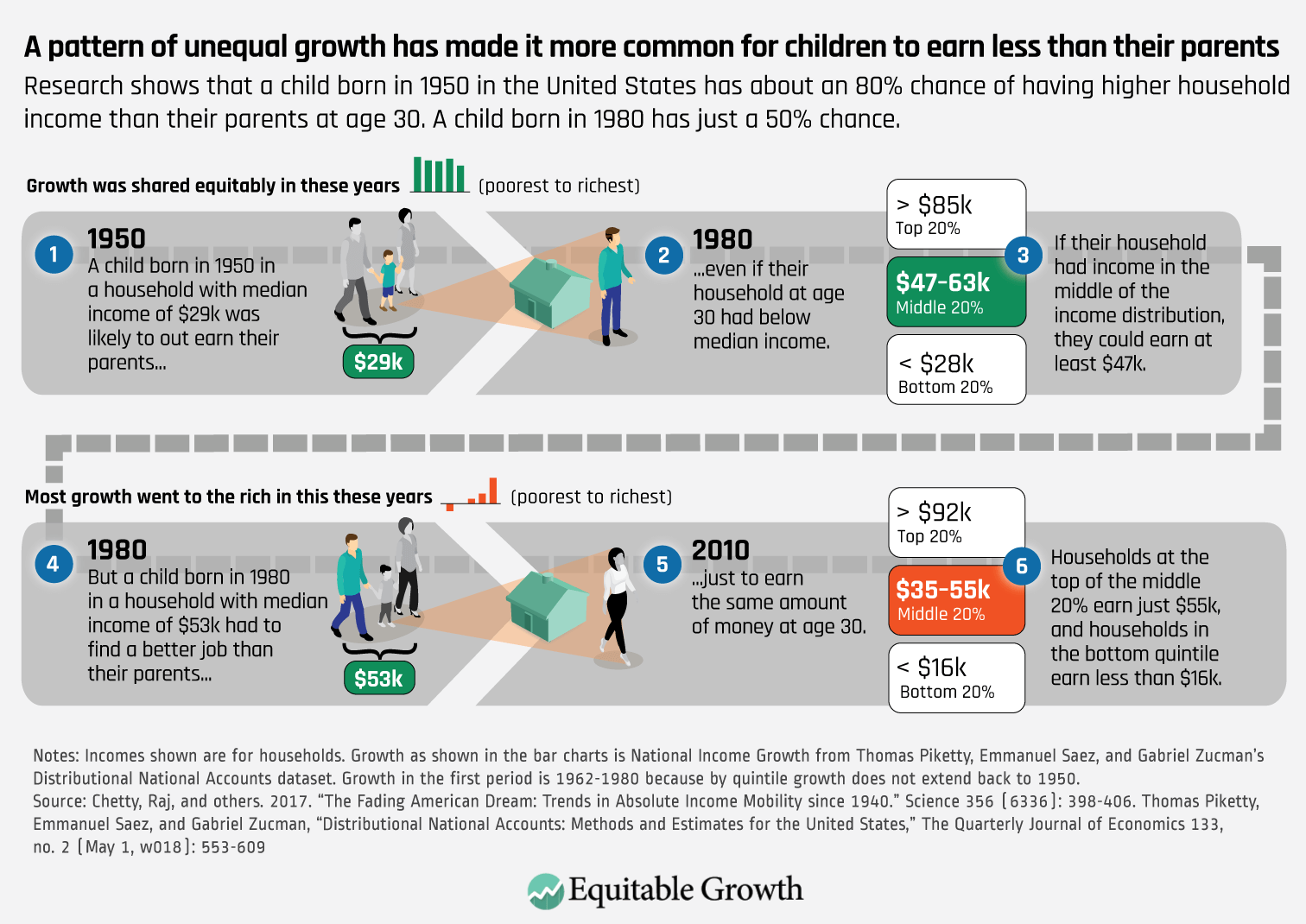Rising income inequality exacerbates downward economic mobility

As economic inequality increased over the past several decades, there’s been growing concern that the trend is hurting U.S. economic mobility, with the consequences of downward economic mobility growing worse. This infographic vividly illustrates those consequences.

The top panel shows that between 1950 and 1980, when economic growth was shared equitably across income quintiles (see the green bars), children born to middle-income households were likely to experience upward mobility even if they slipped down the income ladder a bit. In other words, those children born in 1950 were likely to have a higher income than their parents even if their relative position on the income distribution was a little lower than their parents’ place on the ladder.
The story is different between 1980 and 2010, as shown in the bottom panel. Children born to middle-income households in 1980 would be unlikely to have a higher income than their parents even if those children managed to hold on to middle-income status as adults. The reason: The income gains from growth between 1980 and 2010 were highly concentrated at the top of the income distribution while those in the middle saw less, and those in the bottom two income groups actually lost ground (see the red bars). Children born in 1980 needed to move up the income distribution substantially just to have the same inflation-adjusted income as their parents had.
In the past, economic growth was more equitably distributed and therefore typically raised standards of living in the United States such that upward mobility was considered the norm and was synonymous with the concept of the American Dream. This infographic captures how growth that has unequally accrued to the top of the income distribution threatens the promise of the American Dream and raised the stakes on the consequences of falling down the income ladder.
